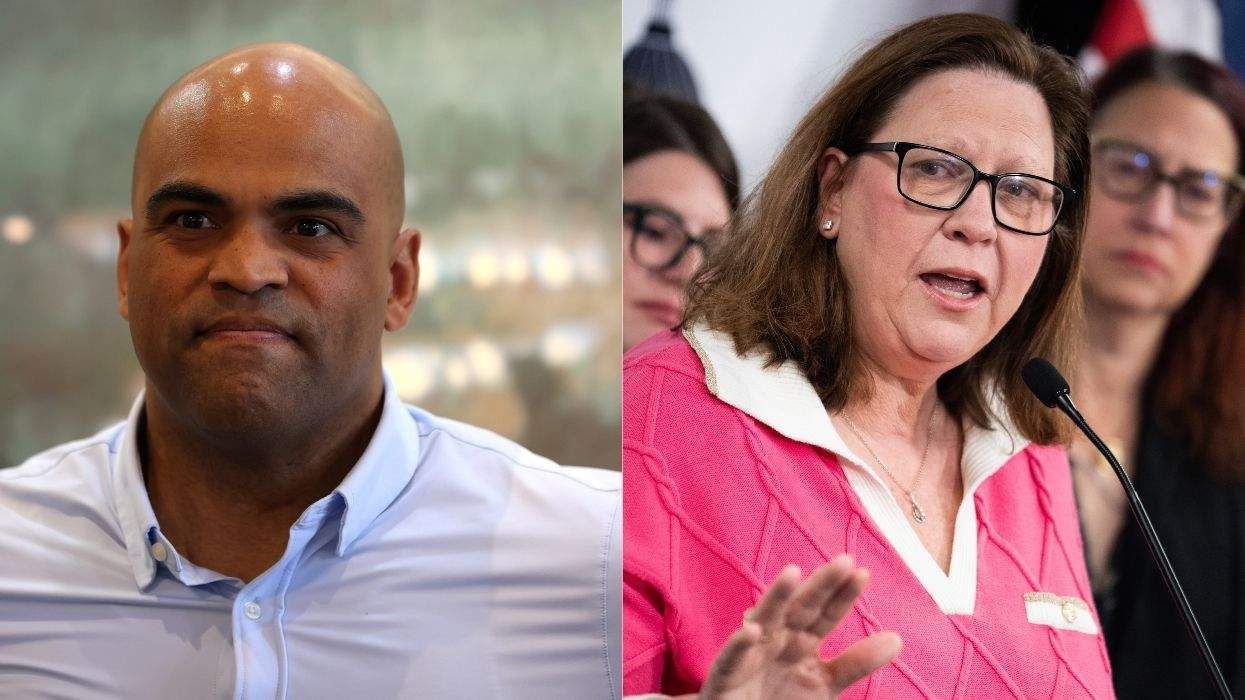Memorializing a man regularly referred to as a "giant" is a nearly impossible task. But nothing says more to me about the character of the late Sen. Edward M. Kennedy than the way he stood with the LGBT community at the outset of the AIDS epidemic.
When Kennedy took over the chairmanship of the Senate Health, Education, Labor, and Pensions Committee in 1987, our nation's political elite had all but ignored AIDS for the bulk of the decade. In the intervening years between July 1981, when The New York Times ran its first article on the disease, and June 1987, when Ronald Reagan gave his first speech on the subject, more than 20,000 people had already died of AIDS in the United States.
Kennedy made AIDS a top priority in the Health committee, helped to secure $1.2 million in funding for AIDS research in 1988, and introduced and ultimately passed what became known as the Ryan White CARE Act, the largest federal program to provide critical medical treatment for people living with AIDS.
But Kennedy's contributions were as notable for what he blocked as for what he passed.
"What people don't understand unless they were there during the darkest days in the '80s," recalls LGBT activist David Mixner, "is that he stopped amendment after amendment proposed by [North Carolina senator] Jesse Helms -- some of the most draconian, hateful amendments imaginable."
From measures that would have criminalized health care workers who knew they were HIV-positive and failed to tell their patients before surgery to allowing doctors to test patients for HIV without consent to criminalizing blood donations from HIV-positive people, Ted Kennedy was there to slay them all.
"One thing I have to say, we talk about how Clinton let us down on DOMA and 'don't ask, don't tell,' and now we're eight months into Obama and we haven't gotten jack from him -- Ted Kennedy never let us down. Ever!" says Mixner.
Though Mixner is careful to note that he wasn't Kennedy's closest confidant, he nonetheless had a strong bond with the senator and attributes his loyalty to the LGBT community -- especially during the AIDS crisis -- to his own experience with saying goodbye to too many loved ones all too soon.
"He understood the concept of, every time you turn around, losing someone close to you -- unexpectedly," says Mixner. "I think that's part of how he came to be so close to us -- that unbelievable connection he had to us through his own great loss."
Mixner echoes the seemingly endless stream of stories over the past few days about Kennedy invariably reaching out to people in their lowest moments. "He would always call at just the right time and know exactly what to say and, without fail, make you laugh," he says.
David Smith of the Human Rights Campaign received one of those treasured phone calls. Two years ago, Smith traveled to Spain to marry his partner and was joined by his family there. Five days after the ceremony, Smith's father died of a massive stroke. As soon as his plane landed back in the states, Smith's cell phone rang and Senator Kennedy was on the other end of the line.
"He had heard what had happened and he wanted to express his sadness," Smith, who had worked for the senator, recalled in a very emotional moment earlier this week. "It was just the most touching thing that the first person to call me was him."
Ted Kennedy, while not perfect and certainly no stranger to controversy, was the ultimate vision of humanity. He had a unique instinct -- all too rare today -- to run toward people who were downtrodden, shunned, targeted by the mob mentality that sweeps our nation so swiftly and fervently these days.
His was a compassion born of personal tragedy that defies words. While I would wish the losses of Ted Kennedy on no one, our country yearns for more individuals, and especially leaders, like him. His life is a testimony to the immeasurable richness that hard-fought, gut-wrenching, soul-stirring pain can foster within people. Every one of us needs a Ted Kennedy in our life and should be so lucky as to have one.
A great man once said, "I am certain that after the dust of centuries has passed over our cities, we, too, will be remembered not for victories or defeats in battle or in politics, but for our contribution to the human spirit."
Little did President John F. Kennedy know on that day in 1962 that his words would imbue the life of no man more wholly than that of his little brother Teddy.















